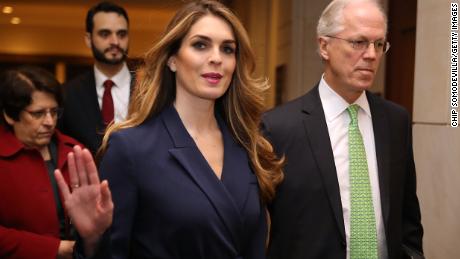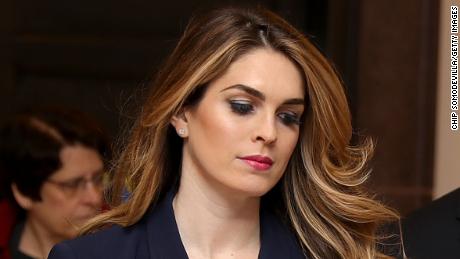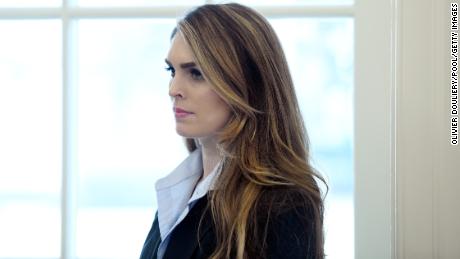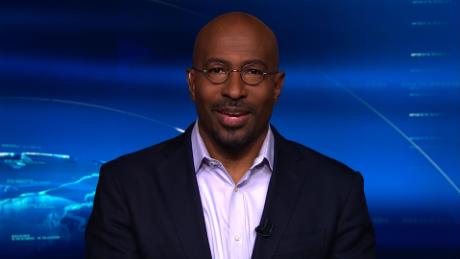(CNN)White House communications director Hope Hicks, who on Wednesday announced she plans to leave the White House, testified to the House Intelligence Committee on Tuesday that she has told what amounted to white lies for President Donald Trump.
Three sources from both parties with knowledge of her testimony told CNN that she was talking about small matters -- like telling people Trump was in a meeting when he wasn't. Hicks' larger point was that she argued she didn't lie on bigger substantive issues like those involving the Russia investigation, the sources said.
When Rep. Pete King, R-New York, asked her if those white lies meant spinning news favorably for her boss, as any press secretary does, she concurred, according to the sources.
The back-and-forth over lies started when a lawmaker pressed Hicks on whether she had ever lied for the President. Her acknowledgment apparently caused some concern among her attorneys, with whom she consulted for roughly 20 minutes during that line of questioning, the sources said.
Hicks' testimony spanned more than nine hours on Tuesday, and she addressed a range of questions about the 2016 campaign and some queries about the transition -- after prodding from lawmakers -- though she would not discuss her time in the White House.
Hicks told the committee she saw little value in the correspondence between Donald Trump Jr. and WikiLeaks that she was alerted to during the 2016 campaign, according to two sources.
During the campaign, Trump's son-in-law, Jared Kushner, forwarded Hicks an email from Trump Jr. about the contact with WikiLeaks. Asked about the email on Tuesday, she told the committee she did not view it as significant, the sources said.
Hicks was also pressed about the June 2016 Trump Tower meeting between Trump Jr. and a Russian lawyer, which she said she did not learn about until June 2017 even though she was in Trump Tower that day, CNN reported Tuesday.
Rep. Adam Schiff of California, the top Democrat on the House Intelligence Committee, criticized Hicks for refusing to answer questions about the White House, noting specifically she would not address her role in drafting Trump Jr.'s misleading initial statement that the Trump Tower meeting was about adoptions.
Schiff said he tried to get the committee to issue a subpoena to Hicks "on the spot," but the Republicans would not do so.
Republicans argued that Hicks was different than former White House chief strategist Steven Bannon, who was hit with a subpoena in the middle of his interview, because she did answer questions on some topics involving the transition -- after the House lawmakers pointed out she had answered transition questions in her Senate interview.
One line of questioning Hicks discussed about the transition Tuesday was conversations between then-incoming national security adviser Michael Flynn and then-Russian Ambassador to the US Sergey Kislyak.
Hicks told the committee that concerns their conversations during the transition could run afoul of the Logan Act -- an obscure 218-year-old law about private citizens negotiating with foreign governments -- never registered with her, according to one source.

















